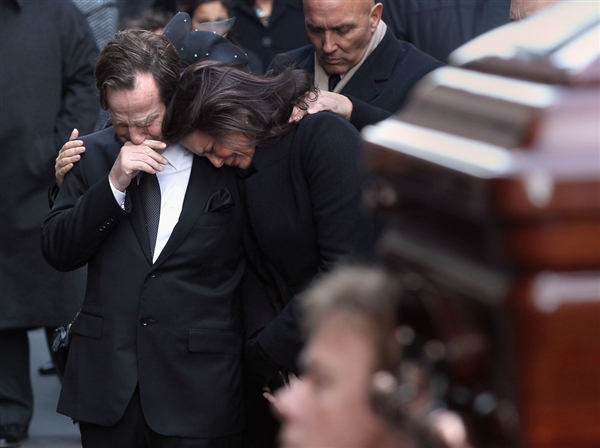Be honest, would you say you’re a strong person, or a weak person?
Chances are you either said you are some variation of strong, or you felt inadequate about admitting you might be weak.
But what if I told you your perception of these two conditions might be backward, and the very thing you think makes you who you are (your strength) is instead the very thing that’s holding you back from the life you were intended for?
Please allow me to explain.
Practically from the time we take our first steps, it is drummed into our brain (by parents, siblings, friends and Hollywood) that we must be strong in order to succeed or survive – without getting pushed around – in this world.
Only the strong survive.
Fight fire with fire.
Fight like a man.
Man up.
These aren’t just catchy slogans or bumper stickers; they’re society’s way of supposedly separating the mighty from the wimpy.
And the problem is, most of us buy it, hook, line and sinker.
But the fact is, our so-called worldly strength is really just a delusion.
Any sudden, unexpected funeral proves that.
And though you might disagree, in some ways, the stronger or tougher we are just might be a good measuring stick for how much we have allowed Jesus to penetrate our heart.
For example, how many of us refuse to be “disrespected” or “called out” so we don’t look cowardly?
How many of us blame our upbringing, genetics, experiences or environment for why we have a quick temper, sharp tongue, or the attitude that we’re “not going to take crap from anyone?”
All of us have, or still do, because that’s exactly how the world has conditioned us.
Yet, that’s not the way Jesus taught us to be, and it certainly doesn’t correspond with how and why He died for us.
“Yea, well, Jesus doesn’t expect me to be perfect like Him,” right?
Don’t you see, that is exactly the cop-out the world has brainwashed us to believe?
Of course Jesus doesn’t expect us to be perfect, but that’s not the point.
Jesus didn’t command us to love our enemies, pray for those who mistreat us or turn the other cheek just so it would make a great fortune cookie; He said these things specifically so we could know what it truly feels like to have Him in our hearts.
In reality, this may be one of the clearest examples of how Jesus loves us, despite the fact that we constantly hurt Him with our actions.
And He gives these commands because He knows that as long as we let the actions of others dictate our anger, language and negative reactions, the longer we will be slaves to the world’s disguised misery.
C.S. Lewis gives us an excellent illustration of what Jesus is trying to tell us.
“To be a Christian means to forgive the inexcusable because He has forgiven the inexcusable in you.”
The only way we’re ever going to experience the life He intends for us – not just superficially, but deep in our hearts – is to genuinely consider exactly why Jesus had to die for us.
But some of us consciously or subconsciously refuse to “go there” because if we do, we’re confronted with an undeniable truth.
And the truth is Jesus, and the reality that without Him doing what He did for us, our lives would carry us only as far as our “worldly strength” takes us – to the grave.
It should absolutely terrify us when we honestly realize that no matter how strong we are – no matter how tough we are, no matter how many arguments we win or how many times we are “right” – we are in desperate need of a Savior.
Yet in the same breath, it should absolutely exhilarate us to know we have one!
But we’ve got to first reach the point of acknowledging our inescapable weakness before we can understand our true strength.
Jesus’ life and death doesn’t just show us how to live, it shows us how we can break free from the world’s stranglehold on the way it has taught us how to think.
Jesus won on the cross by dying on the cross, and the world considered that losing.
However, the only thing that lost that day was death’s grip on us, and the deceitful notion that worldly strength provides us the life we’re looking for.
Because the only way we’ll truly discover the life Jesus intended for us is to possess the incredible strength to be weak.
But He said to me, “My grace is sufficient for you, for my power is made perfect in weakness.” Therefore I will boast all the more gladly of my weaknesses, so that the power of Christ may rest upon me. For the sake of Christ, then, I am content with weaknesses, insults, hardships, persecutions, and calamities. For when I am weak, then I am strong.” – 2 Corinthians 12:9-10



